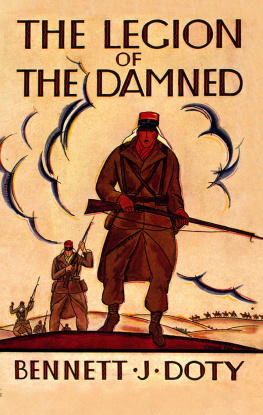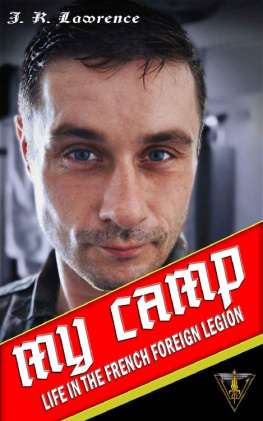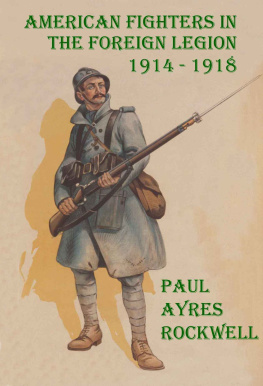At the Edge of the World
Also by Jean-Vincent Blanchard
minence: Cardinal Richelieu and the Rise of France

Contents
Fes took early twentieth-century European travelers by surprise. Approaching the Moroccan city from the west, from Meknes, they saw Fes rise like a citadel in the midst of a wide rocky valley, with nothing outside its fierce defenses but barren land punctuated here and there by a prickly pear cactus, a palm tree, or a wild geranium. The citys nine miles of ramparts and a belt of lush gardens enclosed a tangle of narrow streets, the medina, where ninety thousand people lived in a fascinating concentration of humanity. At dusk, when a low sun gave the citys walls, towers, and bastions a soft golden glow, Fes shone as the ancient, vibrant heart of Morocco.
May 28, 1912, was Fess most dangerous day and one of its most memorable. After the Sultan of Morocco, Abdelhafid, and Frances diplomatic representative, Eugne Regnault, declared Morocco to be a French protectorate on March 30, 1912, the sultan elite guard revolted and, together with the poorest of the population, massacred sixty-three French officers and civilians. French reprisals were equally ferocious. Resentment simmered in Fes over the following weeks, and it spread through the entire city. By the end of May, tensions between the Moroccans and the French reached their nadir. Fifteen thousand warriors coming from the surrounding mountains attacked the city to take it back from the foreigners who still occupied it. After four days of fighting, on May 28, the warriors stood ready to descend again to deal the final blow. European civilians and French personnel were trapped in the labyrinth of the medina, unable to evacuate given the number of wounded that lay sheltered in the hospital.
Right outside the walls of Fes, the Foreign Legion, an essential asset of the citys French military forces, was positioned to bear the brunt of this last attack. Companies of legionnaires were assembled to the north, on a ridge overlooking the city, by the sixteenth-century ruined tombs of the Marinids, an old dynasty of sultans. More legionnaires stood ready for action at the camp of Dar Dbibagh, to the southwest of the city walls.
The Europeans trapped inside, as well as many citizens of Fes, put their last hopes on these legionnaires, who had trained in sweltering Algeria to be fearless. As an all-volunteer corps of the French army, founded in 1831 with a special right to hire foreign-born recruits, the Legion had distinguished itself in Frances colonial conquests, building an empire from Algeria to Indochina, from Madagascar to Morocco. From the 1830s until well after World War I, the Foreign Legion were essential troops in a colonial expansion in the professed name of civilization and racial superiority, at a time of rising nationalism and murderous rivalries between European powers.
In one of Fess palaces with a shaded courtyard, a veteran of the French colonial wars, Louis Hubert Gonzalve Lyautey, oversaw the defense of the siege as the appointed resident-general of Morocco, entrusted with both civil and military powers. Resident-General Lyautey had entered Fes four days earlier to find himself in the thorniest situation. Sultan Abdelhafid, whom he had met upon his arrival, wished to abdicate. The ulemas, Fess highest clergy, told Lyautey that nothing they or the sultan could do would avert a disaster. The wealthy elite merchants, the chorfas, were said to be negotiating with the Amazigh (Berber; plural Imazighen) chiefs to facilitate their assault on the city. News came that the attackers had removed the saintly robes kept in the shrine of Moulay Idriss II, Fess founder and patron saint.
The last attack on Fes began at four oclock in the afternoon of May 28. Thousands of warriors poured down on Fes in a clamor of cries and rifle shots. In no time they were massing at the gates, or climbing the crumbling parts of the walls, and quickly disappearing in the maze of the medina.
On the roof terrace of his headquarters, Lyautey smoked cigarette after cigarette. The wave of fighting rolled toward the palace. Shots were fired. Lyautey and his officers understood that they were now cut off from any communication with the outside. The resident-general pointed his spyglass toward the Maranids site on the mountain and saw the legionnaires advancing.
The roots of Lyauteys admiration and confidence in the colonial army corps of the Legion ran deep. He had first become acquainted with the Legion as a French army officer, when he was dispatched successively in 1894 and 1897 to Southeast Asia and the African island of Madagascar, to solidify recent French colonial conquests. There, among the different corps of the French colonial army, was the Legion. Lyautey steadily rose in rank, giving orders to the legionnaires as they conquered western Algeria, and then Morocco. Afterwards, as the resident-general in that kingdom from 1912 to 1925, a colonial viceroy who had acquired an international reputation, he demonstrated political, administrative, and military talents, relying again on the Legion to accomplish his mission. He would write on the centennial anniversary of the Legion, in 1931:
You all know that I am a legionnaire both in body and soul. Since 1894, in the Tonkin, I constantly marched with the Legion, in Madagascar, in the South Oranais, at the head of the Oran military division, at the border between Algeria and Morocco, and then
Crucial to the Legions aims and missions was Lyauteys project of conquering by winning hearts and minds. As an architect of French colonial expansion, Lyautey wanted to build roads, market places, and schools to show the benefits of the French occupation and slowly gain the peoples trust in what the French viewed as a civilizing mission. With sincere declarations of respect for Moroccan culture and Islam in general, he protected the cultural heritage by encouraging traditional arts and preserving the urban fabric of Moroccan cities. The Legion played a key role in realizing these projects thanks to the astounding variety of skillsengineering and otherwisethat the legionnaires brought to the corps. This is why Lyautey saw the corps as the quintessential troop in his vision of a colonization. The Legion would help spread French civilization like an oil slick, a tache dhuilethe metaphor used by Lyautey himself and his colonial mentor, Joseph Gallieni.
In the courtyard of Mnebhi Palace, on May 28, 1912, Lyauteys aides-de-camp were gathering crates of papers with cans of gasoline nearby, should these papers need to be burned. Lyautey had not slept for two days, yet three hours into the attack, he remained remarkably calm, confident that the Foreign Legion and the other corps of the army would prevail. He ordered dinner to be served on the terrace of his palace, overlooking the medina and the war scene. Days later, the resident-general recounted the night in a letter to a friend:
I had in my company a charming little poet, Lieutenant Droin We took his book to the dinner table so that we could read
Twenty-two years after claiming Morocco for themselves, the
The Legion showed appreciation for the marshal. As a group of foreign-born soldiers, legionnaires did not have a country, but they had a corps to rely on, and exceptional officers who fostered much of that relationship. Lyautey embodied this empathy and Sensitive to the hardships the legionnaires endured in the field, Lyautey built rest houses for them to use when they were on leave or in retirement (Sal, Oran). Conversely, many legionnaires sent to Lyautey remembrances and expressions of respect.













